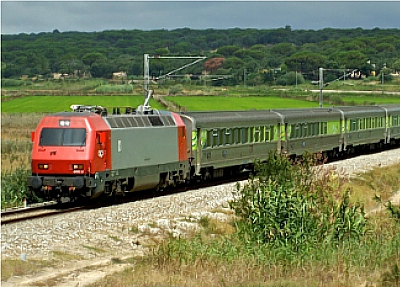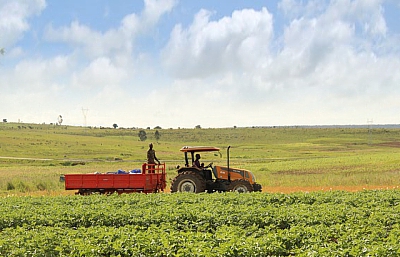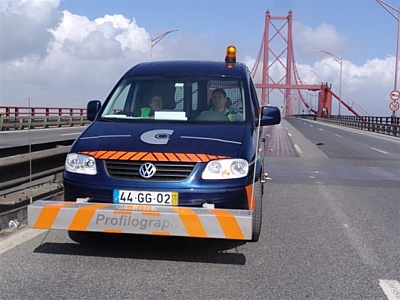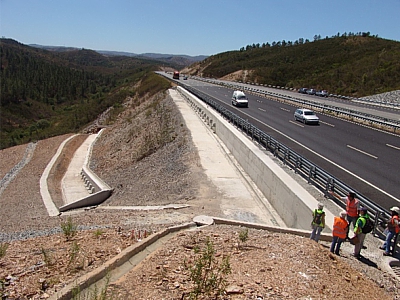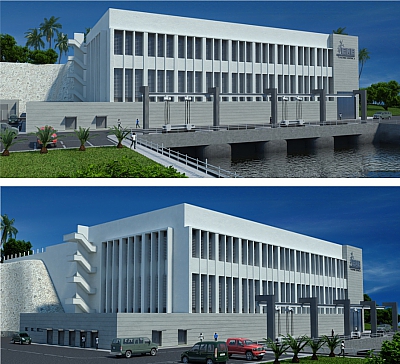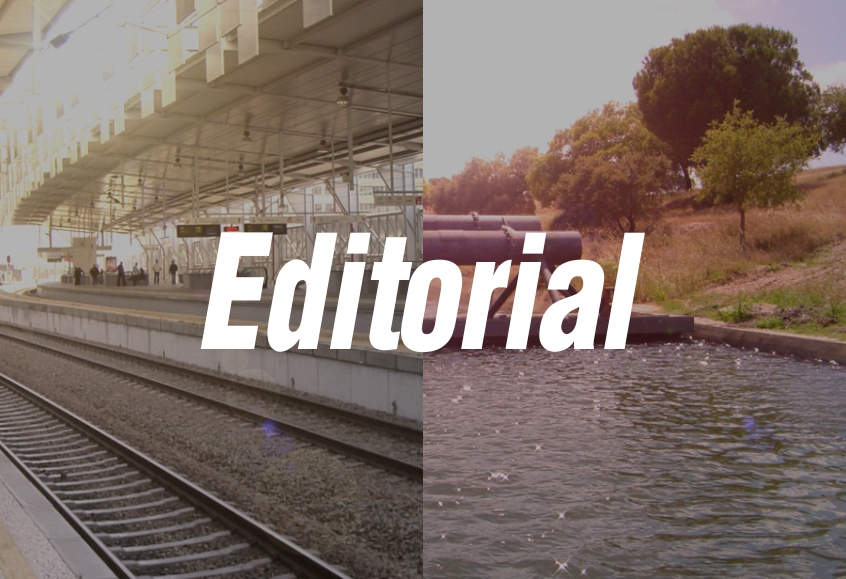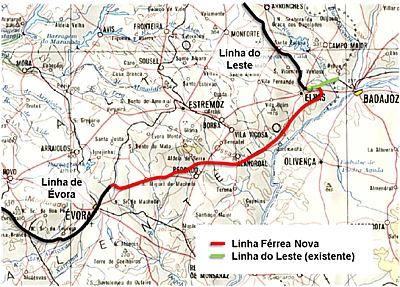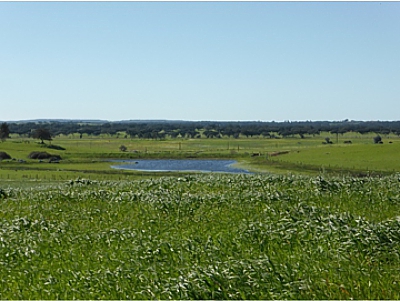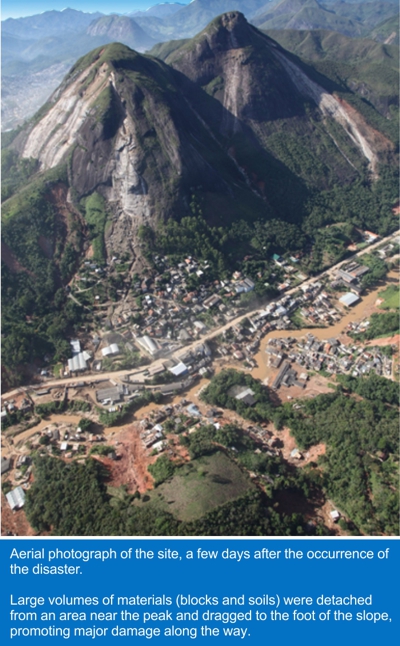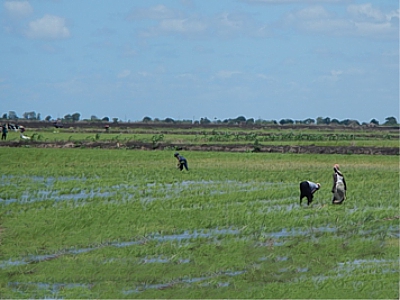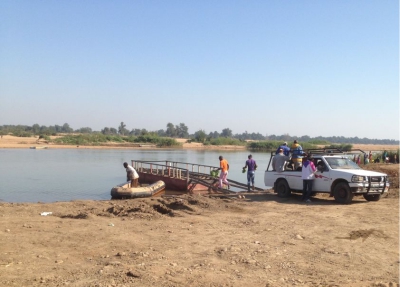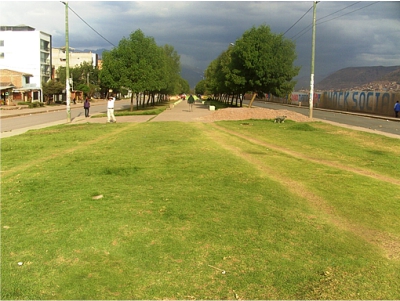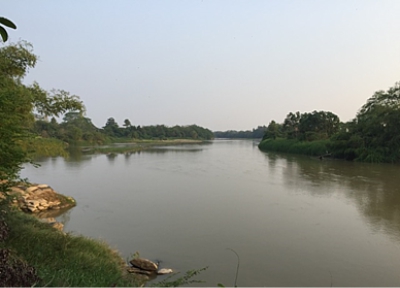|
OPERATIONAL RESULTS 2015 |
|
The accounts pertaining to the financial year of 2015 were approved at the COBA Group’s Shareholders’ Meeting Board, held in early May. The Group maintained its increasing trend of turnover, which amounted to more than 36 million euro in 2015, a value that represents an increase of about 20% over 2014. The Group's operating margin has also been rising, and currently stands at levels above the sector’s average values. The main challenge that the management board faces is associated with the substantial increase of the period for payment of the services contracted by some of our major clients, which results in the inevitable constraints to the Group’s cash flow situation. The solution encountered to overcome this situation entails the additional efforts that have been undertaken throughout the Group’s structure. Such efforts involve the diversification of sources of income, not only for purposes of debt relief for major clients, but also to sustain new projects. In spite of the instability registered in the major international markets in which we operate, the Group has managed to uphold its contracting capacity for new projects, as illustrated in this edition of COBA News. Victor Carneiro
|
|
Lx, 31 May 2016
|
|
BEIRA BAIXA” RAILWAY LINE. SECTION BETWEEN GUARDA AND COVILHÃ |
|
Within the scope of the qualification system launched by “IP-Insfraestruturas de Portugal, SA”, the consortium led by COBA Portugal and composed of the companies TYPSA, TECNOFISIL & GRID, was contracted to provide the services related to the Modernization of the Covilhã / Guarda Railway Section - Completion and adaptation of Detailed Design and Technical Assistance during construction. This project is included in the priority interventions of the International Northern Corridor, which envisages the optimization of the railway connection of central and northern Portugal with the rest of Europe, and thus warrant a more efficient freight transportation by rail and promote an increased national competitiveness. It also aims at restoring the service level of railway passenger transport. This intervention aims to ensure:
Railway interoperability of the Corridor, at national and international level; Remove constraints in terms of infrastructure; Enable the circulation of 750 m-long trains. |
|
Lx, 31 May 2016
|
|
ANGOLA - CABINDA PROVINCE INTEGRATED AGRICULTURAL DEVELOPMENT STUDY |
|
In May, the consortium led by COBA Portugal and integrating the companies COBA Angola and CESO CI, initiated the studies for the the Cabinda Province Integrated Agricultural Development, for the Ministry of Agriculture of Angola and financed by the AfDB - African Development Bank. Works will be carried out by a team of experts that will cover the most various aspects related to an agricultural development study, and will include experts in Agricultural Economics, Agricultural and Rural Engineering, Water Resources, Irrigation, Livestock, Institutional Policy, Credit / Finance, Environment and Gender Aspects. Preparation of this study, with an expected duration of five months and conclusion in September 2006, should be understood not only as part of a project cycle pre-investment activity that aims to provide both the Angolan Government and the AfDB with information and analisys leading to a project preparation report, but also meet the following specific objectives:
Critically assess the potential of agro-industrial implementation in the Province; Analyze and propose marketing perspectives of agricultural and livestock products, and enhance their marketization and value; Assist and support both the Angolan Government and the AfDB in the identification and development of projects for the Cabinda Province. AfDB’s involvement in this study emerged, on the other hand, after identification of the low socioeconomic development in the province and, on the other hand, from a previous knowledge of the potential of agricultural sector towards the contribution to poverty reduction and employment creation. |
|
Lx, 31 May 2016
|
|
PORTUGAL – FINAL CHARACTERIZATION OF THE MADEIRA AIRPORT PAVEMENTS |
|
CONSULSTRADA, one of the COBA Group’s companies, was awarded the Study for Final Characterization of the Pavements, within the scope of the Strengthening of the Pavements of the Madeira International Airport (Funchal). The study consisted in the validation of the design assumptions, namely the assessment of the Load Bearing Capacity, with the respective calculation of the runway’s PCN, measurement of the International Roughness Index, and measurement of the pavement surface Friction and Texture of this airport’s taxiways. All these parameters were measured resorting to appropriate high performance equipment, namely the Falling Weight Deflectomer, Laser Profilograph and the Grip Tester. |
|
Lx, 31 May 2016
|
|
PORTUGAL – PAVEMENT UPGRADING ON THE “VASCO DA GAMA” AND “25 DE ABRIL” BRIDGES |
|
CONSULSTRADA, a COBA Group company, was commissioned to supervise the works for upgrading of the pavements of the access viaducts and spans of the bridges integrated in the “Lisbon Tagus River Road Crossings Concession”, namely the “25 de Abril” and “Vasco da Gama” Bridges. Over the past ten years, Lusoponte, the concessionaire, has entrusted CONSULSTRADA with the inspection of pavements on the “Vasco da Gama” and “25 de Abril” bridges, certainly due to the know-how of the company, associated with the efficiency and reliability of the high performance equipment of which it disposes. |
|
Lx, 31 May 2016
|
|
PORTUGAL – GEOTECHNICAL REPAIR WORKS IN MOTORWAYS UNDER OPERATION |
|
Since 2010, COBA Portugal has been developing for BRISA Concessão Rodoviária, S.A. (BCR), through BRISA Engenharia e Gestão, S.A. (BEG), a series of slope stabilization projects that fall within its programme of Studies and Designs associated with the maintenance of the safety conditions and service quality of the motorway network operated by this Concessionaire. Such activity has earned the increasing trust of these entities, due to the quality of the solutions proposed and to the scrupulous respect of contractual deadlines. These projects, essentially of geotechnical nature, normally require the interdisciplinary support of other engineering specialties, such as drainage, pavements and utilities. Other companies of the COBA Group are normally engaged in these activities, namely LandCOBA and Tetraplano. Contracted services usually include a diagnosis of unstable zones, based on the execution of field surveys (geotechnical & topographic), the preparation of a Preliminary Study that serves as a basis for the Detailed Design of the chosen solution, including Bill of Quantities, Tender Documents and Operating Manual. Technical assistance is provided by COBA during construction of all works, including very often an analysis of values recorded by auscultation devices, which normally begin before construction and extend during their maintenance period. The geotechnical works designed are diverse and depend on local constraints and conditions (topographic, geological and geotechnical, as well as the surrounding environment / land occupation). COBA has designed solutions for gabion retaining walls, anchored walls founded on piles, concrete walls with micropiles, as well as solutions involving jet-grouting. These projects require a close cooperation with BEG / BCR’s teams during assessment of the design solutions and their safety during the construction phase, as well as monitoring of activities on site. Among the several projects carried out for BEG / BCR during the past few years, special reference is made to the following: A2 Motorway – Subsection Almodôvar / São Bartolomeu de Messines. Stabilization of Embankment Slopes between km 218+700 and km 218+800 (S/N and N/S directions) A1 Motorway – Subsection Fátima / Leiria. Stabilization of the Excavation Slope of Branch B of the Leiria Interchange (km 129+450, S/N) A1 Motorway – Subsection between the Carvalhos Interchange and Stº Ovídio. Stabilization of the Excavation Slope of Branch E of the Carvalhos Interchange (km 293+000, N/S) A1 Motorway – Subsection Alverca / V.F.Xira II. Stabilization of the Excavation Slope (km 19+700, N/S) A14 Motorway – Figueira da Foz / Coimbra (North). Subsection between the NR335 Interchange and the Ançã Interchange. Stabilization of Embankment Slope at km 32+600. Geotechnical characterization and diagnosis. A14 Motorway – Figueira da Foz / Coimbra (North). Subsection Santa Eulália / Montemor-o-Velho – Stabilization of Embankment Slope (km 14+900, W/E). |
|
Lx, 31 May 2016
|
|
ANGOLA – LUACHIMO HYDROPOWER UNDERTAKING |
|
In the very near future will begin the construction works and installation of equipment for Rehabilitation and Uprating of the Luachimo Hydropower Undertaking, located in the river with the same name, next to Dundo in the Lunda North province, in northeastern Angola. Built in the 50's to supply electricity to the city of Dundo and near mining areas, it consists of a dam, a water circuit and a powerplant with an installed capacity of 8,8 MW. In the Preliminary Design for Rehabilitation and Uprating of the Luachimo Hydropower Undertaking, prepared by COBA in 2013, were optimized the available water resources of the Luachimo River. It was decided to abandon the existing powerplant, implement a new water circuit for a flow of 240 m3/s – four times larger than the current capacity – and build a new powerplant equipped with four units with an installed capacity of 8,2 MW each. The works include the rehabilitation of the remaining infrastructures and equipment of the undertaking. >After uprating, it is expected that the undertaking will generate an average annual energy value of 260 GWh, 3,6 times superior to the current energy generation. The Preliminary Design developed by COBA comprises the base document for the procurement process of the contract awarded by the Angolan Government, through the Ministry of Energy and Water and GAMEK; construction works will commence in a very short term. During the construction phase of the Luachimo Rehabilitation works, COBA will commence a new contract, and offer its collaboration to the Owner by preparing the detailed design of the civil construction works and the approval of the documents pertaining to the equipment that is to be installed in the undertaking. This undertaking includes the future Electric Network of the 220 kV Eastern System Dundo – Lucapa – Saurimo – Luena. Along its route, in addition to the Luachimo Undertaking, the Eastern System will receive the energy produced by several hydropower plants, including the existing Chicapa I Undertaking (16 MW), the Chicapa II Undertaking (31.2 MW), whose design is concluded, and Chiumbe-Dala (12.4 MW), currently under construction, as well as the existing thermal power plants at Dundo, Saurimo and Luena. In recent years COBA has developed, for MINEA, and in addition to the Luachimo studies and designs, those pertaining to Chicapa II and Chiumbe-Dala, as well as the 220 kV Dundo-Luena and the 60 kV Dundo-Lucapa Energy Transmission Lines, as well as associated Distribution Networks. |
|
Lx, 31 May 2016
|
|
GOOD PERFORMANCE UNDER A CHALLENGING ENVIRONMENT |
|
After a period of almost complete absence of investment in infrastructures in Portugal, some signs of recovery are evident and we are pleased to communicate that two contracts were awarded to the COBA Group for the study and design of two new infrastructures, one in the field of railways, and the other in the hydro-agricultural area. Hopefully these are just the first of many Projects included in a new era of public investment, naturally guided towards meeting expectations that were not satisfactorily addressed in previous modernization and development programmes, focusing in railways, ports and logistics, as well as urban requalification and regeneration. For international companies, the crisis associated to the cost of raw materials implies increased efforts to guarantee the sustainability of their Projects, since their initial phase, including plan, study and design, unless these are promoted by multilateral development agencies. The efforts for diversification of the markets in which the COBA Group operates continue, and the results are emerging in a sustained manner, as illustrated by some examples in this newsletter. Constant attention in given to our clients sources of financing, even attempting in particular cases to seek financial resources that may be associated with proposals requesting the provision of our services. Victor Carneiro |
|
Lx, 29 Feb 2016
|
|
PORTUGAL – NEW RAILWAY CONNECTION BETWEEN ÉVORA NORTE AND ELVAS/CAIA |
|
After selection under an eligibility procedure launched by “IP – Infraestruturas de Portugal, SA”, the Consortium led by COBA Portugal and also composed of the companies TYPSA, TECNOFISIL and GRID was engaged to provide the services relating to the preparation of the Preliminary Studies, Detailed Design and Technical assistance of the New Railway Connection between Évora North and Elvas/Caia (Spanish border) - Contract D - Track, Geotechnics and Utilities. This highly important new railway connection integrates the Strategic Plan for Transport and Infrastructure 2014-2020 (PETI3+). The new railway line is inserted in a corridor with an approximate length of 80 km. The infrastructure will comprise a double track with Iberian gauge (1668 mm), designed for mixed railway traffic at speeds of 250 km/h for passenger trains and 120 km/h for freight trains. This railway connection will be electrified and equipped with electronic signalling devices. It shall accommodate the circulation of 750 m-long freight trains, and will be provided with the characteristics that allow to optimize the load capacity of locomotives (1 400 t in simple traction). Three crossing stations are envisaged on the new line, each with an effective length of 750 m. This contract will be undertaken simultaneously with Contracts A (Coordination), B (Electrical Traction fixed systems) and C (Bridges and Special Structures), which result from independent tenders launched by "IP – Infraestruturas de Portugal", for the same Railway Connection between Évora and Elvas/Caia, also under commissioning phase to other joint ventures. |
|
Lx, 29 Feb 2016
|
|
PORTUGAL – VIANA DO ALENTEJO – NEW IRRIGATION BLOCK OF THE ALQUEVA MULTIPURPOSE DEVELOPMENT |
|
COBA Portugal is currently carrying out the Detailed Design and Environmental Impact Study of the Viana do Alentejo Hydraulic Circuit and Respective Irrigation Block for EDIA – Empresa de Desenvolvimento e Infra-Estruturas do Alqueva, S.A.. This irrigation block, located in the Beja (Municipality of Alvito) and Évora Districts (Municipalities of Évora and Viana do Castelo), is incorporated in the Alqueva Multipurpose Development. This Hydraulic Circuit will serve an area of approximately 4486 ha, and the irrigation block will contemplates the following infrastructures: Connection to the existing Pumping Station of Baronia, taking advantage of two pumping units, with a flow rate of 0,250 m3/s each; Pumping Station to be built downstream of the water intake of the Baronia Reservoir, dimensioned for a pumping head of 52 m and a flow rate of 1.7 m3/s; Pumping Main with a total length of 1.2 km, which comprehends steel core prestressed concrete piping with ND1400 mm; Reservoir with net storage capacity of 40000 m3, built by land modelling; Filtration Plant with a flow rate of 2.7 m3/s; Secondary irrigation network which encompasses 34 km of buried concrete, DCI and HDPE pipelines, with diameters ranging from 200 to 1500 mm, and 56 hydrants; Road Network, which includes the upgrading/construction of rural roads with total extension of 3 km; Drainage Network which includes reshaping and cleaning of water courses. The following designs and projects will also be undertaken: Monitoring, Automation and Remote Control Systems; Geographic Information System; Environmental Impact Study. |
|
Lx, 29 Feb 2016
|
|
BRAZIL – SLOPE STABILIZATION AT “CÓRREGO D'ANTAS, NOVA FRIBURGO” - RIO DE JANEIRO |
|
The detailed design for slope stabilization of the “Duas Pedras” Hill, at “Córrego D’Antas”, Nova Friburgo, State of Rio de Janeiro, arose from the need to establish a set of works and interventions in the location upon the occurrence of the “”Megadesastre” in the Mountain Region of the Rio de Janeiro State” (occurred on January 2011) and considered one of the biggest events of widespread mass movements in Brazil, triggered by extreme weather conditions. Officially, it caused 947 casualties, 300 missing persons, over 50 thousand homeless and affected almost 1 million people. The project was undertaken by COBA Brazil and involved the specialities of geology, geotechnics, hydraulics and structures. The slope stabilization techniques of the “Duas Pedras” Hill at “Córrego D’Antas” included the following: fix the blocks or chippings, preventing them from sliding - fixing with bolting and/or anchoring, with or without buttresses, fixing with anchored grid, use of counterforts or beam with anchor bolts/ anchored beam and “spider” systems made of high-tensile steel wire; fragmentation and removal of blocks - removal of small loose blocks or breakdown of larger blocks; enable the safe fall of blocks and flow of debris, without causing damage - flexible and/or rigid barriers against falling blocks and debris flow. The design of the drainage system took into account the need to divert the flows resulting from rainfall of the urban area at the bottom of the “Duas Pedras” Hill. For such, two subsystems were designed and executed, which flow into the “D'Antas” stream. One of the major challenges of the implementation of this project was related to the logistics and complexity of the construction process, due to the gradient of the rocky hillside a set of movable “inclined planes” was adopted. |
|
Lx, 29 Feb 2016
|
|
MOZAMBIQUE – NEW MAGULA BLOCK WITHIN THE LOWER LIMPOPO IRRIGATED PERIMETER |
|
The COBA Group, and more specifically COBA Portugal, is undertaking the Detailed Design for Construction of the Magula Irrigation Block, for the Chinese contractors “Synohydro”. This block is located in the Gaza province, district of Xai-Xai and within the Lower Limpopo Irrigation Perimeter. The Magula block serves a total area of approximately 2500 ha (1st Phase – 1500 ha and 2nd Phase – 1000 ha), through the following infrastructures: Pumping Station located on the left bank of the Limpopo River, designed for a pumping head of 10 m and flow of 3,3 m3/s; 100 m-long pumping main, made of DCI, with nominal diameter 1200 mm (1st Phase); Feeder pipe with trapezoidal section and a total length of 7 km, designed for a flow of 1,8 m3/s (1st Phase); Secondary irrigation network comprising buried DCI and PVC pipelines, over an extension of 16 km, with diameters ranging from 160 to 700 mm, and 112 hydrants (1st Phase); Drainage network, composed of a 6 km-main ditch and secondary ditches with 20 km (1st Phase). COBA has been proudly involved in the projects developed over the last decade in the Lower Limpopo Irrigation Perimeter, which plays a fundamental role in achieving food security in the region. |
|
Lx, 29 Feb 2016
|
|
MOZAMBIQUE – BUILDING CLIMATE RESILIENCE IN THE LIMPOPO BASIN – MAPAI DAM |
|
The Pre-Feasibility and Feasibility Studies for Building Climate Resilience in the Limpopo Basin, where the construction of the Mapai Dam appears to be one of the most suitable solutions, were recently awarded by ARA-SUL to the COBA/CONSULTEC/SALOMON Consortium. The site proposed for the Mapai Dam is located about 8 km downstream of the confluence of the Nuanetsi River, a tributary of the Limpopo River left bank. The major objectives associated to the construction of the dam are to minimize flooding and to create a strategic water reservoir that can meet de requirements for several uses (irrigation, cattle breeding, energy production, water supply to populations, tourism and fishery). The effectiveness of the dam response as part of the creation of the climate change resilience will be assessed for different scenarios in accordance with the "Framework for Water Security and Climate Change Resilient Development" established by the African Union. COBA will carry out the climate change studies, as well as the Pre-Feasibility and Feasibility Studies of the Mapai Dam and of the Hydropower Plant. |
|
Lx, 29 Feb 2016
|
|
PERU – NEW CUSCO EXPRESSWAY |
|
The COBA Group, in association with a Peruvian consultancy firm, will develop the Detailed Design of the New Cusco Expressway for the client Proyecto Especial Regional Plan (COPESCO) of the Peruvian Regional Government, with financing from the World Bank. The World Bank loans cover several interventions included in the Cusco Transport Improvement Programme, managed by COPESCO. The estimated investment cost for full improvement the Expressway amounts to 140M USD, of which 80% are funded by the World Bank. COPESCO is the executive body for public investment projects regarding regards the development of infrastructures and promotion of touristic resources. In the collaboration between COPESCO and the World Bank, the intervention on the Expressway was established as a priority, along with the consolidation of the Touristic Circuit between the Cusco Historic Centre and the Sacred Valley of the Incas, including Machu Picchu. The Detailed Design of the Expressway will develop a 7 km-long urban road connection between the historic city centre of Cusco and its periphery with an alignment adjacent to the airport runway. This urban road, based on a a boulevard concept, will have, four tracks in each direction, interchanges, unlevelled crossings, two bridges, pedestrian footpaths and bicycle lanes. The integration of the Expressway in an urban context will transform the existing space into a high-capacity road that respects the safety rules of residential and commercial areas, contributes towards the restructuring (decentralization) of the city and confers it with a more contemporary arrangement, without conflicting with its historical area. The COBA Group will not only coordinate the joint-venture activities, but will also participate in the topography, alignment and road studies, as well as in the fields of soils and pavements. The studies will have a duration of 8 months, and are expected to commence in April 2016. |
|
Lx, 29 Feb 2016
|
|
COLOMBIA – MAGARÁ HYDROAGRICULTURAL UNDERTAKING |
|
The COBA Group leads the joint-venture responsible for the Supervision of the Feasibility Study of the Magará Hydroagricultural Undertaking (Interventoría de la elaboración del estudio de factibilidad del distrito de adecuación de tierras Magará), in the Santander Department in Colombia, for the client Fondo de Adaptación. The services engaged include the review and the technical, administrative, financial and legal monitoring during the Feasibility Study Phase of the undertaking, with the following main characteristics: Total project area of about 12 000 ha; Project area situated in the Northeastern part of the Santander Department, in the Magdalena Medio region, also serving several areas of the Sabana Torres municipality; Main river that crosses the project’ area of influence: Lebrija River; Area predominantly occupied by livestock farms, pastures, orchards, rice crops, cocoa and palm trees. The principal infrastructures to be designed are: Water source in the Lebrija River; Irrigation network canals with a length of approximately 104 km; Drainage Network with an extension of about 86 km; Flood Control System comprising two protection dykes on the banks of the Lebrija River (20 km) and of the Santos Gutiérrez Stream; Improvement of the existing road network. permitir a queda de blocos ou fluxo de detritos de maneira segura, sem causar danos - barreiras flexíveis e/ou rígidas contra a queda de blocos e fluxo de detritos. |
|
Lx, 29 Feb 2016
|

